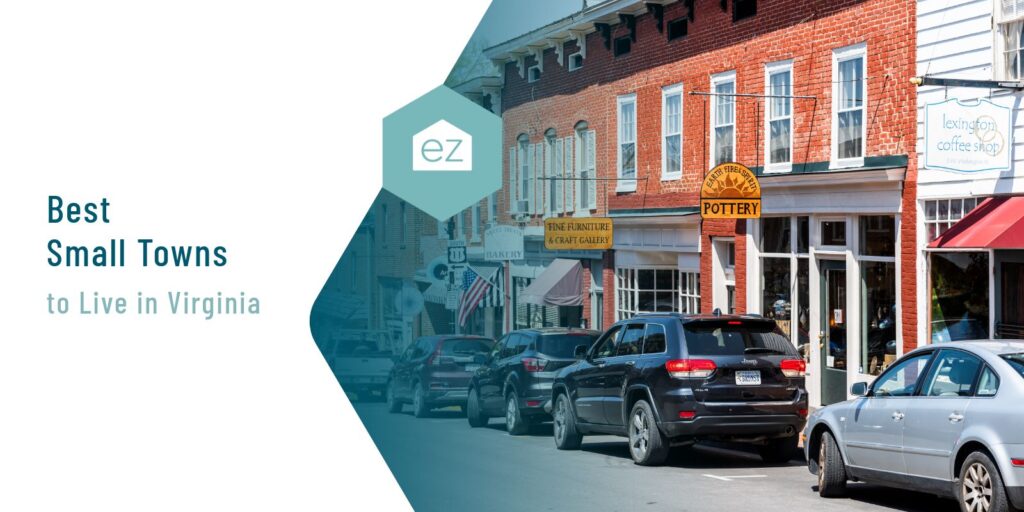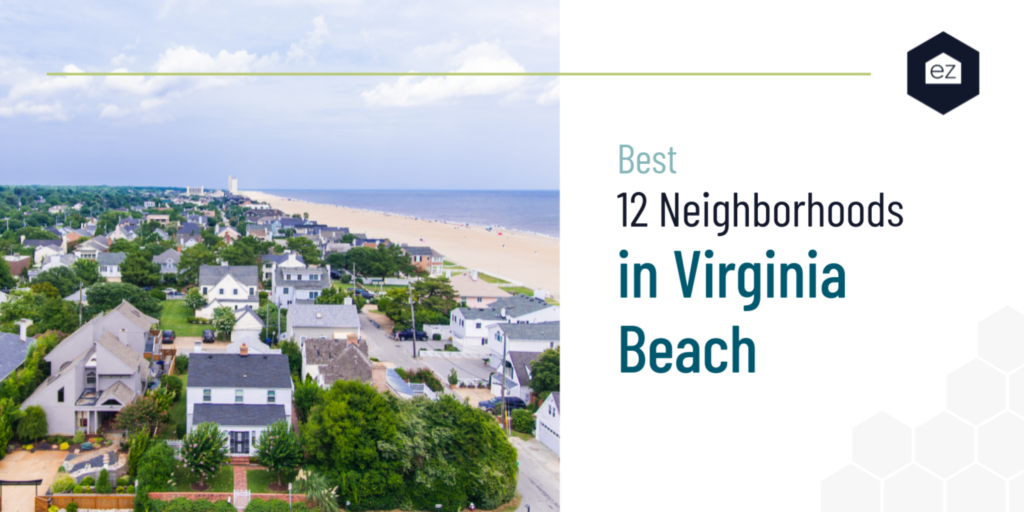EZ Home Search Guide to Virginia Property Taxes
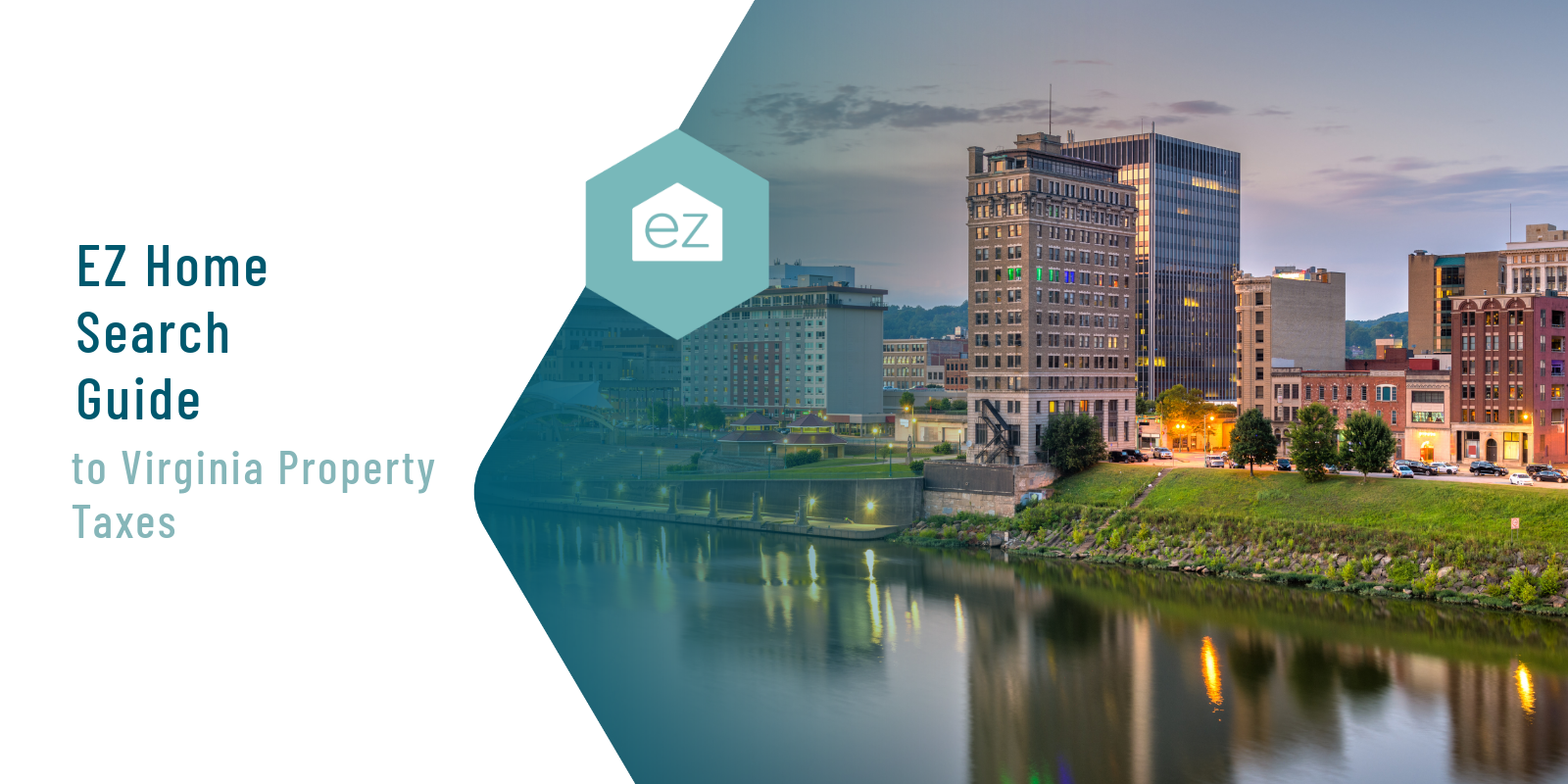
EZ Home Search Guide to Virginia Property Taxes
Are you looking to buy a home in Virginia? Besides learning about the local real estate market, you’ll be interested in all the costs associated with owning a Virginia home. Learn what you need to know about property taxes in Virginia, from how they are calculated and collected to where to find answers to your taxation questions.
Understanding Virginia’s tax regulations will bring clarity to creating a financial plan when buying a home in the Commonwealth.
About Virginia Property Taxes
Virginia considers real estate taxes to be local taxes. Homeowners pay their taxes at the county, city, and town levels and won’t owe anything to the state.
The overarching theme of Virginia’s real estate tax system is “it depends on where you live.” The legislation is very loose and open at the state level compared to other states. Many surrounding states have a system where they set the standards for property valuation and assessment values or impose mileage limits. That’s not the case here.
Virginia lets the local taxing authority determine its own property classification system, property valuation method and assessment schedule, payment schedule, and millage rates. The only stipulations set at the state level are each authority must set up a property classification system and re-value every 2-6 years.
One uniform characteristic is tax rates are assessed per $100 of property value. So, if the tax rate is 1.0 mils, you’ll pay $1 for every $100 of assessed property value.
We use the terms “local taxing authority” or “taxing jurisdiction” because you owe real estate taxes to a county and town or to a city but no county.
How Virginia’s Property Tax Rates Compare
The good news is at the statewide level, Virginia is near the middle for its property tax burden. RocketMortgage ranked it no. 19, while WalletHub had it as no. 20. Both found Virginia had an average effective tax rate of 0.82% in 2022. This is how much homeowners paid in property taxes expressed as a percentage based on their home’s value. It can be used to make apples-to-apples comparisons, as some states have higher property values than others.
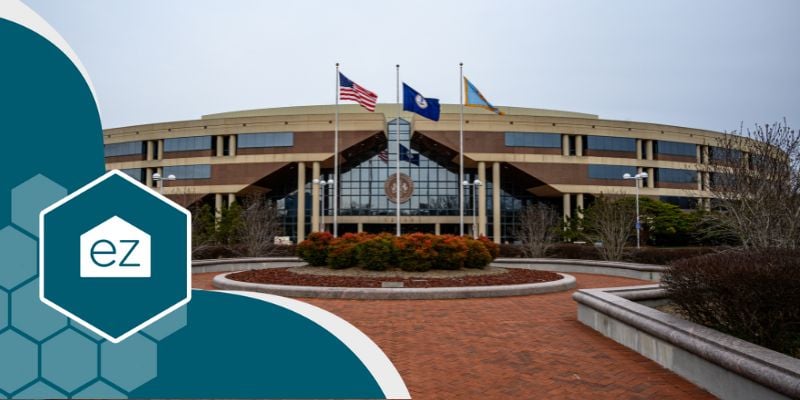
The Virginia median property value in WalletHub’s analysis was $295,000, which meant homeowners paid an average of $2,420 in taxes.
But here’s the thing: Virginia has an incredible spread of property values across its rolling hills. Some counties are well below national median home values, while others rank among the most expensive places to live.
Take Falls Church, which was among the top eight counties nationwide for median property taxes. Tax bills here exceeded $10,000.
Assessed real estate taxes brought in funds of over $12.5 billion in 2021, so it’s a significant part of funding Virginia counties and cities. Virginia’s average tax rate that year was 0.98. You can use this number to see if the area you might buy a home charges more or less than the state rate.
Figuring Out Virginia Property Taxes
Since Virginia’s system is so incredibly local, you’ll need to look at the counties, cities, or towns you are considering moving to.
While most jurisdictions levy their taxes on 100% of the assessed value, some may have different rules. You may pay less than 100% in some areas or if your county allows a special exemption based on personal circumstances like age or disability.
As for how your property values are determined, the taxing authority can decide which method they use. One common method is using comparable sales data to determine value. The taxing authority will also set its re-valuation cycle. The Code of Virginia says every four years unless the county’s population is under 50,000, in which case the re-valuation can be done in five or six-year cycles. So a county like Fauquier or Montgomery is on a four-year cycle while Augusta County re-values every five.
Some jurisdictions may re-value more frequently, particularly towns. A city like Lynchburg must re-value every two years.
And there’s no common thread regarding when property taxes are assessed. Some authorities expect payment on the tax bill once a year, while others break the levy into biannual payments. Due dates could be at any point during the year.
What you will definitely get is a real estate assessment notice. All taxing authorities must mail these to you before the bill is due, so you have time to review and submit an appeal if you disagree.
Just how much will you owe? Again, that depends on where you live. It will combine property values and the local millage rate. What we can tell you based on the 2021 Local Tax Rates is the four counties with the highest millage rates were:
- Prince William (1.115)
- Fairfax (1.14)
- Roanoke (1.09)
- Arlington (1.03)
Three of these counties are in the Northern Virginia Region, where you’ll find the DC metro suburbs.
The three lowest millage rates were:
- Lunenburg (0.38)
- Buchanan (0.39)
- Mecklenburg (0.42)
Two of the three were side-by-side counties in south central Virginia near North Carolina, and one was in the mountains by West Virginia.
But how about city taxes? Remember, some residents don’t pay county taxes at all because their taxing authority is solely a city given taxing rights by the state. In this case, you’ll pay the most in:
- Manassas Park (1.53)
- Manassas (1.46)
- Petersburg (1.35)
And the least in:
- Williamsburg (0.6)
- Fredericksburg (0.8)
- Covington (0.8)
Your property address may also fall under an additional taxing district. These can be created to fund and administer sewer, fire and rescue, conservation areas, and special infrastructure projects like roads or lighting.
Want more clarity? Check out this provided map that can pinpoint a taxing jurisdiction’s rates, due dates, and payment information. Once you know what part of Virginia you’d like to live in, this can clarify your budget.
Virginia Homestead Property Exemptions
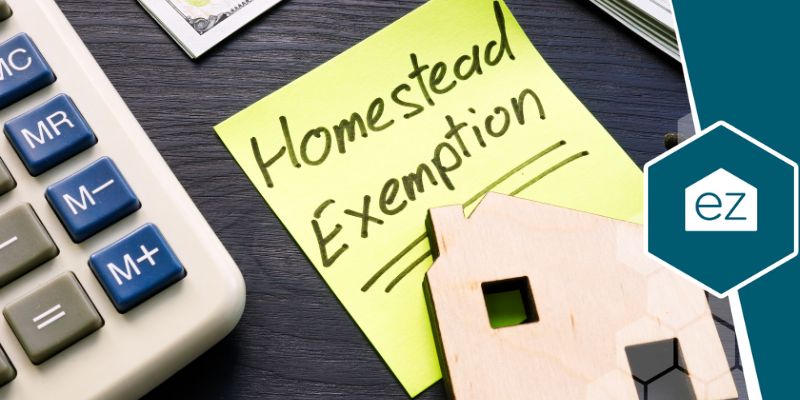
Homestead exemptions vary across the taxing jurisdictions both in type and amount. Generally speaking, after looking at some common trends, you may be eligible for some property tax relief if you are disabled, a veteran, or over 65.
Using Fairfax County as an example, the homestead exemptions are:
- Disabled Veteran or Surviving Spouse: For those with 100% service-connected and permanent disability
- Surviving Spouses of US Armed Forces Killed In Action: Exemption on taxes for the home and up to one acre as long as you are not remarried.
- Surviving Spouse of a First Responder Killed On Duty: Exemption on taxes for the home and up to one acre as long as you are not remarried.
- 65 years and older: Depends on your income if you receive 25-100% tax relief.
Fairfax County also has a solar energy equipment tax exemption for installing solar equipment related to space cooling or heating, water heating, or other applications.
Meanwhile, the City of Danville only offered a real estate tax exemption to 100% disabled service veterans on their home and up to one acre.
Each county’s application process differs, so check with the local taxing authority if you believe you qualify for a property tax exemption or some property tax relief.
Final Word on Virginia Property Taxes

Homeowners must pay property taxes to support local governments, public institutions, and schools. How much you’ll pay will depend heavily on where you decide to live in Virginia. Don’t just use millage rates to narrow down the counties, cities, or towns you may want to call home. Factor in property values, too, as even a low millage rate can add up quickly if you buy a $1 million home.
The information presented here is not intended to serve as tax advice. We recommend speaking with a tax professional regarding any tax questions you may have.
Start Your Home Search
Preston Guyton
Share this Post
Related Articles
Living in Virginia
Best Small Towns to Live in Virginia
Living in Virginia
